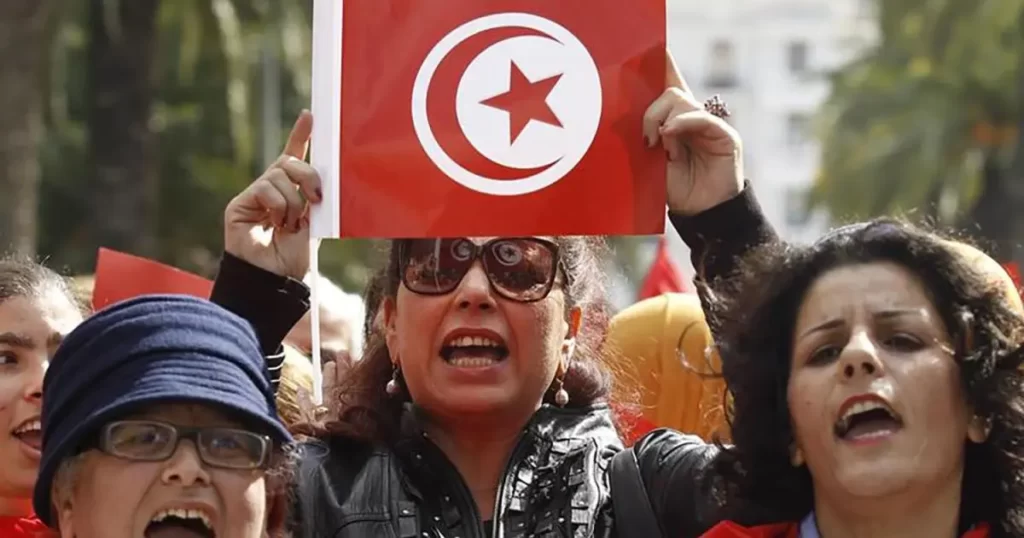Human Rights Violations in Tunisia: An Overview
Tunisia is a country located in North Africa that has been plagued by human rights violations for decades. Despite its transition to democracy in 2011, after the fall of President Zine El Abidine Ben Ali’s dictatorship, Tunisia still faces serious challenges in the field of human rights.
The country has been widely recognized for its progress towards democracy and human rights, particularly in its adoption of a new constitution in 2014, which included significant reforms and protections for human rights. However, the implementation of these reforms has been slow and has been met with opposition from various sectors of Tunisian society.
Human Rights Watch and Amnesty International have documented a range of human rights abuses in Tunisia, including torture, police brutality, restrictions on freedom of expression, and discrimination against women and minority groups. These abuses are particularly widespread in the context of Tunisia’s ongoing state of emergency, which was extended multiple times since its initial implementation in 2015.
Torture
Torture remains a widespread problem in Tunisia. According to a 2019 report by Amnesty International, torture is used to extract confessions and information from suspects, particularly those accused of terrorism offenses. The report also documents cases of torture in prisons and detention centers across the country, including the use of electric shocks, beatings, and sexual violence.
Despite the adoption of a new constitution in 2014, which expressly prohibits torture, there have been few prosecutions of those responsible for torture in Tunisia. The lack of accountability has contributed to the persistence of this practice, which undermines the rule of law and the protection of human rights.
Police Brutality
The use of excessive force by police officers is a persistent problem in Tunisia. In 2020, Human Rights Watch documented multiple cases of police brutality, including the use of tear gas, rubber bullets, and batons against peaceful protesters. These abuses have also been documented in the context of Tunisia’s state of emergency, with security forces accused of conducting arbitrary arrests and using excessive force against suspects.
The lack of accountability for police officers who commit acts of violence has contributed to the persistence of police brutality in Tunisia. The failure of the government to hold these officers accountable undermines the rule of law and the protection of human rights.
Freedom of Expression
The Tunisian government has also been criticized for its restrictions on freedom of expression. Journalists, activists, and bloggers have been targeted for their critical reporting and commentary, including through the use of defamation laws and other forms of legal harassment.
In 2020, Reporters Without Borders ranked Tunisia 72nd out of 180 countries in its World Press Freedom Index, highlighting the challenges faced by journalists in the country. The government has also been accused of blocking websites and social media platforms, further limiting the ability of Tunisians to express themselves freely online.
Discrimination Against Women and Minority Groups
Women and minority groups continue to face discrimination and violence in Tunisia. According to Human Rights Watch, women and girls are at risk of domestic violence, sexual harassment, and forced marriage. Discrimination against the LGBTQ+ community is also widespread, with same-sex relations punishable by up to three years in prison.
Tunisia’s laws and policies have been criticized for failing to protect the rights of these groups. The government has been slow to adopt laws and policies that protect the rights of women and minority groups, and its enforcement of existing laws has been weak.
EU’s influence
The European Union (EU) has an important role to play in addressing human rights violations in Tunisia. As a major trading partner and provider of financial assistance to the country, the EU has significant leverage that it can use to promote respect for human rights.
One key way that the EU could help is by conditioning financial assistance to Tunisia on the government’s willingness to address human rights abuses. This could include requiring the government to take concrete steps to investigate and prosecute those responsible for violations, as well as to reform laws and policies that contribute to abuses. The EU could also consider providing support to civil society organizations working to promote human rights and hold the government accountable.
In addition, the EU could use its diplomatic channels to pressure the Tunisian government to address human rights abuses. This could involve publicly condemning violations, raising concerns directly with Tunisian officials, and working with other international partners to hold the government accountable.
The EU should also prioritize engaging with Tunisia on human rights issues in its trade negotiations. The EU has been negotiating a deep and comprehensive free trade agreement with Tunisia since 2016, and these negotiations provide an opportunity to push for reforms that would improve human rights protections. The EU could use its bargaining power to ensure that any trade agreement includes human rights provisions, and that these provisions are enforceable.
Finally, the EU should continue to support the work of international human rights organizations such as Human Rights Watch and Amnesty International, which have documented human rights abuses in Tunisia. The EU could work with these organizations to monitor the human rights situation in the country, and use their findings to inform its own policies and actions.
Overall, the EU has a responsibility to use its influence to promote respect for human rights in Tunisia. By conditioning financial assistance, using diplomatic pressure, prioritizing human rights in trade negotiations, and supporting civil society and international organizations, the EU can help to ensure that the Tunisian government takes the necessary steps to address human rights violations and promote a more just and democratic society.
The international community, including the United States and the United Nations, must also take steps to support human rights in Tunisia. This includes increasing diplomatic pressure on the government to address human rights violations, providing funding and support to civil society organizations working on human rights issues, and offering protection to individuals who are at risk of persecution or harm.
The US government should use its influence as a major donor and trading partner with Tunisia to press for human rights improvements, including the implementation of the recommendations put forth by international human rights organizations. The US should also ensure that its aid and trade policies are not contributing to human rights abuses.
The UN should also prioritize human rights in its work in Tunisia, including monitoring and reporting on human rights violations and offering technical assistance to the government to improve its human rights record.
Tunisia has made important strides in democratization and human rights since the 2011 revolution, but significant challenges remain. The government must take urgent action to address human rights violations and ensure that those responsible are held accountable. The international community must also prioritize human rights in its work with Tunisia, offering support and assistance to civil society organizations and pressing the government to make meaningful improvements in its human rights record.
Conclusion
Human rights violations remain a serious problem in Tunisia, despite the country’s transition to democracy in 2011. The persistence of torture, police brutality, restrictions on freedom of expression, and discrimination against women and minority groups undermines the rule of law and the protection of human rights in the country.
The government of Tunisia must take urgent steps to address these violations and hold those responsible accountable. It should implement the recommendations put forth by international human rights organizations such as Human Rights Watch and Amnesty International. This includes ensuring that security forces are held accountable for excessive use of force, arbitrary detention, and torture. The government must also investigate and hold accountable those responsible for attacks against journalists, activists, and civil society members.
The government should also repeal laws that are used to suppress freedom of expression, including the 2018 law criminalizing defamation of state officials and institutions, as well as the 2010 law criminalizing “harming public order or morality” through publications or recordings.
The government should prioritize the protection of women’s rights, including ensuring that perpetrators of violence against women are held accountable and that women have access to justice. The government should also work to combat gender-based discrimination in all aspects of society.
Here is a potential statement on how the EU could help address human rights violations in Tunisia:


